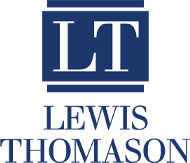By: Justin Joy
The Tennessee Court of Appeals recently decided a case involving a forum selection clause in a contract. The case of Lakeway Real Estate2 LLC v. ERA Franchise Systems LLC involves a dispute over a noncompete provision in a franchise agreement. The franchisee, Lakeway Real Estate2 LLC, sought declaratory relief from the chancery court, arguing that the noncompete provision in the franchise agreement was unenforceable. The franchisor, ERA Franchise Systems LLC (ERA), moved to dismiss the complaint because the forum selection clause in the agreement designated specific courts in New Jersey as the proper venue. The court quoted the clause at issue, stating:
Venue and Jurisdiction. You submit to the non-exclusive personal jurisdiction of the state and federal courts of New Jersey for any litigation arising out of or related to this Agreement or to any aspect of the business relationship between the parties. Such litigation will have venue in state courts in Morris County, New Jersey, or in the United States District Court for the District of New Jersey.
The trial court granted the franchisor’s motion to dismiss, finding the clause as mandating exclusive jurisdiction in New Jersey. The franchisee appealed, arguing that the clause was permissive, not exclusive, and allowed for jurisdiction in New Jersey but did not require it.
The Tennessee Court of Appeals reversed the trial court’s decision, agreeing with the franchisee. The appellate court found that the clause provided for non-exclusive personal jurisdiction in New Jersey. Under the agreement, the specified New Jersey courts were an option; however, they were not the only venues where litigation could be filed. The court emphasized that the clause should be read as a whole, and using the term “non-exclusive” indicated that New Jersey was a permissive, not mandatory, forum. Specifically, the Tennessee Court of Appeals determined that:
[T]he inclusion of “non-exclusive” in the first sentence of the [forum selection clause] is evidence of the parties’ intent at the time of drafting to make New Jersey a permissive, but not mandatory, jurisdiction for disputes arising out of the Agreement. The first sentence means that the parties have consented to the state and federal courts of New Jersey having jurisdiction over them. This is not to say, however, that they are consenting to personal jurisdiction only in New Jersey.
In addition to reciting well-established contract interpretation principles, the court’s opinion provides a helpful reminder to Tennessee practitioners when the parties to a contract desire to have disputes related to the contract litigated in a specific place. [1] While the two ideas are sometimes practically synonymous, the distinct concepts of jurisdiction and venue are analyzed separately in a forum selection clause. Accordingly, if the intention of the parties is to resolve disputes in a specific locale, the contract should provide both for an agreement on the jurisdiction (i.e., consent to suit in a specific state) and an agreement that the case will be brought in a particular county within the jurisdiction and/or in a specified federal district court within the selected state. Otherwise, such as in this case, there may be a mandatory/permissive mismatch where the venue is specified, but the jurisdiction is not exclusive.
[1] The court interpreted the contract under New Jersey substantive law, but for purposes of this article, Tennessee law is similar.
In the April 17th Issue of TBA Connect – Business Law Section





